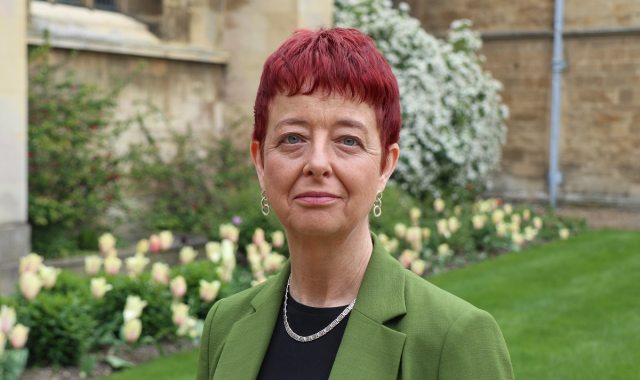Music
Our course covers a broad range of music, as well as a great variety of ways of thinking about and understanding music, ranging from medieval plainchant to the blues, and from advanced analysis to the study of music and science. Over recent decades many of the most significant figures in British music have studied or taught at Cambridge: composers such as Alexander Goehr, Judith Weir and Thomas Adès; performers like Joanna MacGregor and Thomas Trotter; and conductors including John Eliot Gardiner, Christopher Hogwood and Edward Gardiner.
The Music course at Cambridge provides a wide-ranging education in western music, covering both the technical aspects of music (through the study of Analysis, Harmony and Counterpoint) and its historical and cultural background. Some practical skills are also taught, and students can choose to specialise in composition and/or performance. Further options include the study of Music and Science, and Ethnomusicology. Many students are advanced performers on their main instrument or voice, but the course is designed to be suitable for performers and non-performers alike.
Music at Caius
Caius admits about five students to read Music each year – no other college within the University admits more. Caius has two permanent Fellows in Music: the composers Robin Holloway and Matthew Martin, the latter of whom is the Director of Music and who directs the college choir. The Director of Studies in Music is Jeremy Summerly, who specialises in Tonal Skills (Harmony & Counterpoint) and Notation; the other regular supervisors in Music at Caius are Dr Rajan Lal (analysis) and Dr Nathan Mercieca (music history).
The College offers an excellent range of facilities to support its students reading Music. All are provided with a piano or good electronic keyboard in their room for three years, and the College assists generously with the costs of practical tuition for advanced performers. The Bateman Auditorium is the regular home for the chamber music activities within the College, centred on a model B Steinway piano (2003). The College also has several practice rooms on both sites and a 2-manual harpsichord by Mackinnon and Waitzmann (1996) based on a French instrument of 1711. The Chapel is also available as a performance space and boasts a 3-manual organ by Klais (1981) and a 2-stop chamber organ by Robin Jennings.
The College Library has an excellent supply of music scores, including complete editions of Bach and Mozart and important historical collections such as Musica Britannica, and houses one of the largest college collections of books on music. The Library also houses two other types of music collections, one containing chamber music and solo vocal music and the other containing CDs. The former contains scores and parts for many chamber works, such as string quartets, and duplicate copies of most volumes for both singer and accompanist. Music students also have access to computers which have the Sibelius music software for writing music.
The College is ideally situated for those reading Music, with the main accommodation blocks at Harvey Court being close to the Music School (where the lectures and classes take place) and to the University Library, which houses one of the finest music collections in the country. The Old Courts are situated in the heart of the old part of Cambridge, and close to the city shops. Music plays a vital role in College life, ranging from formal College concerts and Chapel music to the regular programme of chamber music concerts, informal musical evenings, musicals and jazz events promoted mainly by the College Music Society. The College recognises these activities through the awarding of annual music prizes and awards.
Music students at Caius have widely divergent interests and backgrounds. Some have developed a passion for music principally through performance (including former members of the National Youth Orchestra of Great Britain), and others are dedicated composers (including winners of The Guardian & BBC Young Composer of the Year award), but the diversity and flexibility of the Music Tripos allows many different kinds of Music student to flourish here.
Details of University Instrumental Awards are available here. Details of Choral Awards at Caius are available here.
Teaching Fellows
Admissions
Applications will be assessed on a variety of factors, including the details of your academic record, examples of sixth-form work submitted shortly before the interview (essays, compositions, harmony and counterpoint exercises, as appropriate), references, and interviews. Whilst the study of traditional western harmony, either through analysis or by undertaking harmony and counterpoint exercises, is useful in advance of coming to Cambridge, a proven ability in this area is not a requirement, as this is now taught from scratch to those who have not covered the ground in their sixth-form work. It is recommended that applicants should have keyboard skills of Grade 6 or above.
All suitably-qualified candidates will be invited to interview. There is one interview for each candidate. Candidates will be asked questions concerning the work they submit in advance, and will also be asked to comment on a number of short, varied musical extracts which will be given to them to study half an hour before the interview. If you have any questions about the admissions process, please contact the Admissions Tutor at admissions@cai.cam.ac.uk.

